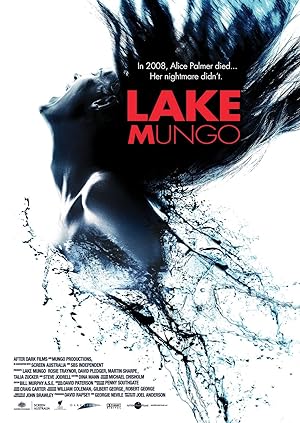Lake Mungo is fictional, but successfully embraces the documentary genre to explore grief and how people cope after the accidental death of a sixteen year old girl. Lake Mungo also tackles the image that we have of someone-is it accurate or can we never truly know someone and who can/should tell that person’s story. The answer is no one, not even the person who has lived that life yet that story almost has a life of its own independent from the one living it. The story wants to be uncovered, told and seen. I think there were some deliberate pacing problems, and the supernatural elements didn’t completely work. Lake Mungo wanted to have its cake and eat it too. I would have preferred if it had chosen to take one route instead of taking a route then backtracking and then going wait, let’s go back down this road after all. Lake Mungo is very ambitious in a Rashomon visual text way, but the execution was not effective and instead of ambiguity, Lake Mungo unintentionally undercut what it was ultimately trying to say. I would recommend Lake Mungo to book lovers who enjoy ambiguous texts, but warn that you may be frustrated by the lack of answers.





